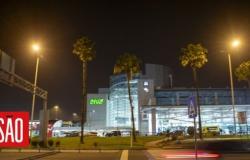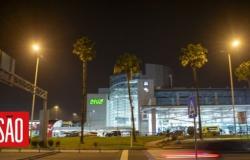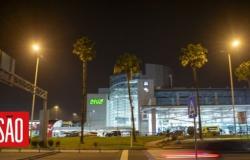Measures from the Executive Directorate of the National Health Service (DE-SNS) came into force at the beginning of this month that change the way in which local health units (ULS) – particularly those in peripheral regions and the interior of the country – respond to cases of breast cancer, particularly with regard to surgical treatments for the oncological disease. A SATURDAY, the Portuguese League Against Cancer guarantees that this is a bad decision. Find out what will change, why, and how the new measures will affect patients.
What changes?
DE-SNS determined that seven local health units – structures that can encompass more than one hospital – will stop performing breast cancer surgeries, referring their patients to the nearest ULS that meets the minimum requirements to support this type of operation. . According to the management, these are those that “perform at least one hundred surgeries per year and have at least two surgeons dedicated” to this oncological specialty, as stated in the deliberation that changes the referral network for this type of surgeries.
Why?
DE-SNS justifies the concentration of patients in these ULS with the need to guarantee “a minimum volume of activity that provides experience, quality and safety to interventions, in order to bring equity to users in the various regions of the country”, reads the same document. The number of one hundred patients per year referenced by the executive management is also the minimum threshold defined by the Portuguese Society of Senology (mastology) to guarantee the quality of care.
“There are institutions that operate on 20 breast cancer patients a year”, Hugo Pinto Marques, surgeon and coordinator of the Working Group for the Development of the General Surgery Hospital Referral Network, adding that “nIt is not reasonable for an institution that operates on two or fewer patients per month to continue performing this type of surgery.” In defense of the reorganization, the specialist also stated that “there is a direct relationship between the volume of patients treated and the results”, that is, “patients treated in institutions with more cases have better results”.
What problems arise?
The changes implemented by DE-SNS generated considerable opposition within the sector. The Medical Association, which regretted not having been consulted in the preparation of a “relevant technical-scientific decision”, said, in a statement sent to newsrooms, that the measure “will have a negative impact on the populations and the quality of health care provided” . The Order highlighted the pressure exerted on central and district units, in a context in which many of them are experiencing “difficulties in responding in a timely manner in this area”, and said that the measure will “remove specialist doctors who see their differentiated activity reduced, compromising complete medical training in these ULS”.
The Portuguese League Against Cancer (LPCC), which was also not consulted by DE-SNS, considers that “the problem should be faced in another way”: “interior units must be equipped so that they can meet the standards of quality” that the executive management wants, he told SATURDAY the general secretary of the LPCC, Vítor Veloso. The director considers that, in many cases, the minimum number of operations is not reached “because people go directly to the IPOs, precisely because they know that there are no conditions inside”, and that, once these health units are trained, the cases would arise.
Both organizations also highlight the “unnecessary journeys” that the new system will impose on users – some of them lasting several hours, such as from the Guarda region to Coimbra -, a “very serious problem that burdens both the SNS and the patients themselves, who often have no conditions, are poorly housed and are exploited”, says Vítor Veloso, who also regrets that the measure contributes to the “desertification of the interior.”
Which units are affected?
According to the new guidelines, the following local health units, which refer their patients to their respective partners, will no longer perform breast cancer surgeries:
ULS do Oeste – forwards to ULS in the Leiria or Lezíria Region
ULS of Cova da Beira – forwards to ULS or IPO of Coimbra
ULS of Guarda – forwards to ULS or IPO of Coimbra
ULS of Castelo Branco – forwards to ULS or IPO of Coimbra
ULS of Baixo Mondego – forwards to ULS of the Aveiro Region or IPO of Coimbra
ULS of Barcelos/Esposende – forwards to ULS of Braga
ULS of the Northeast – forwards to ULS of Trás-os-Montes and Alto Douro
Will oncology care end in these units?
In units that close breast cancer surgeries, consultations and oncological screening continue, with patients being referred to other health units if they require surgical intervention. The DE-SNS clarifies that the units that now accommodate patients from other regions were consulted and accepted the increase in the volume of surgeries. Of the units that stopped carrying out interventions, only one, the ULS of Cova da Beira, requested to maintain the activity, being denied because it did not meet the conditions considered necessary.
Do these changes solve the problem?
According to DE-SNS’s own criteria, not entirely. The deliberation mentioned six ULS that, even though they do not reach the target of one hundred surgeries per year, will maintain surgical activity: the ULS in the Leiria Region (where patients from the ULS do Oeste will be sent), in Aveiro, on the Alentejo Coast, of North Alentejo, Middle Tagus and Lower Alentejo.
“We understand that institutions that do not reach this number, but that are able to improve the conditions that exist, can maintain their project”, he explained to Public Hugo Pinto Marques. “We must consider that we can recommend its continuation, always with a subsequent reassessment to understand whether the plan is being fulfilled and whether it has had good results,” he said.






